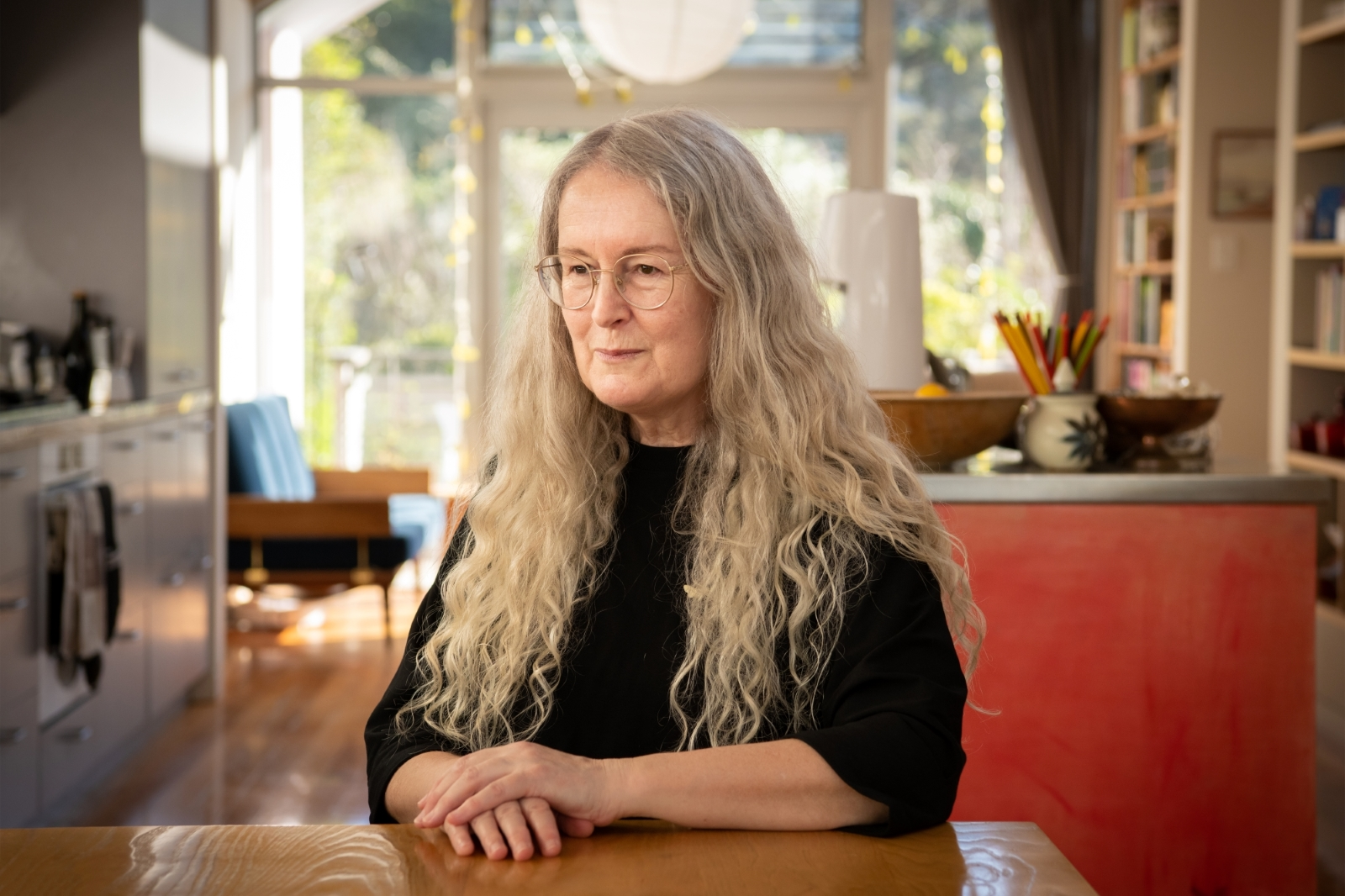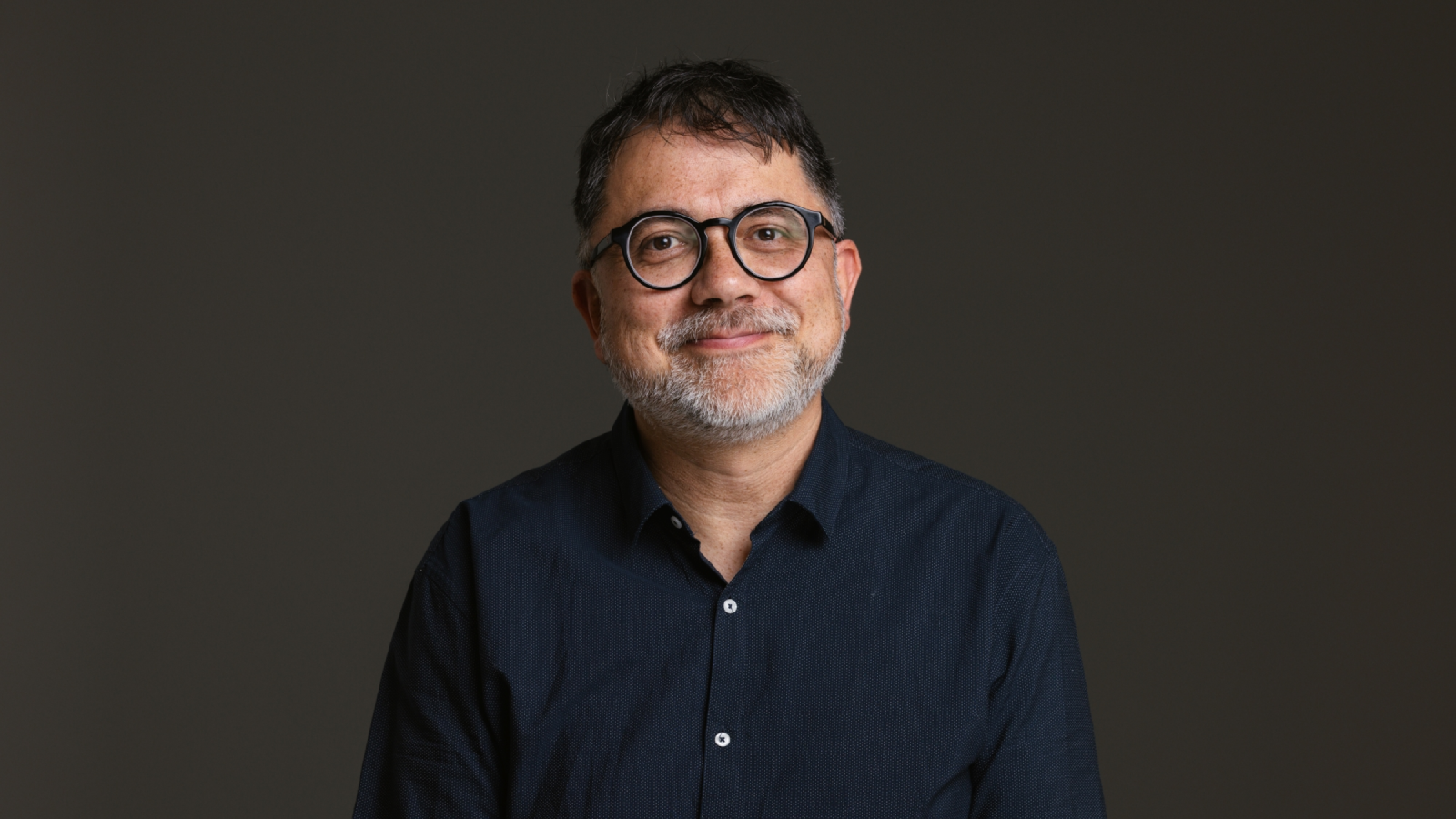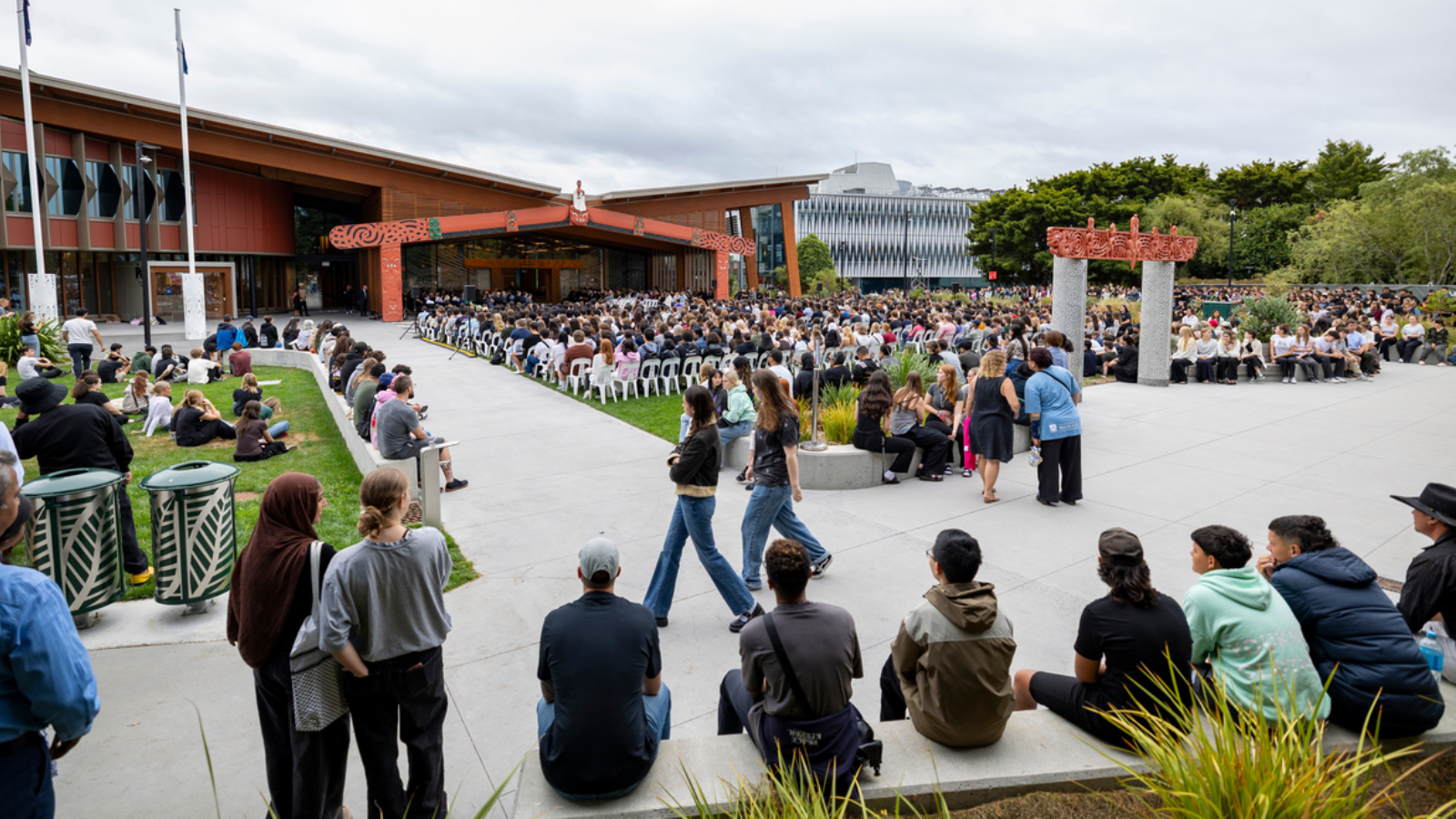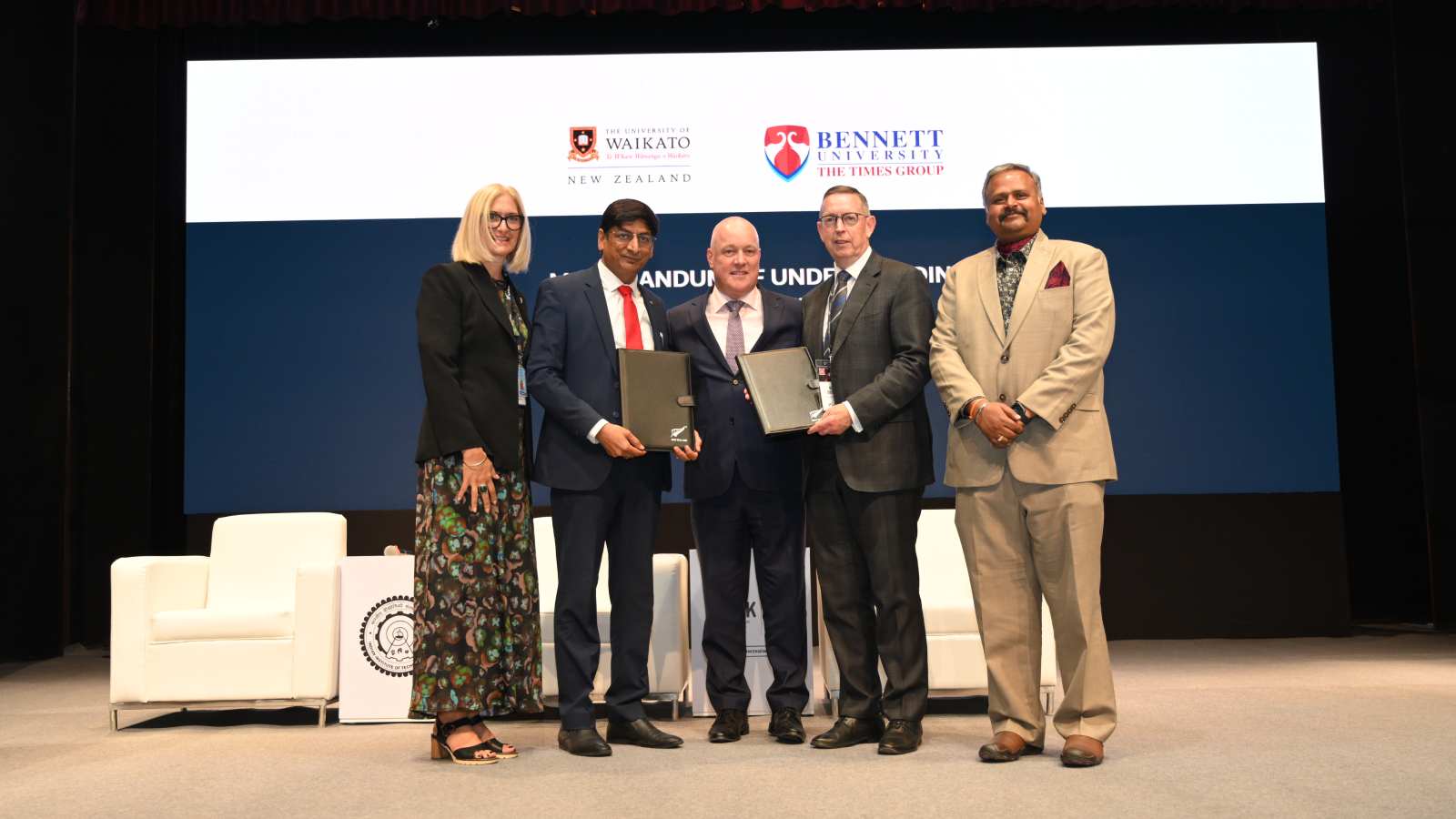University of Waikato researchers to lead seaweed farming trials in Hauraki Gulf and Bay of Plenty
University of Waikato researchers’ Dr Marie Magnusson and Dr Rebecca Lawton will receive $1.2 million to lead research into seaweed farming in the Hauraki Gulf and Bay of Plenty as part of a $5 million commercial regenerative seaweed farming pilot.

PhD student Jacob Nepper-Davidsen, Dave Blyth (Premium Seas Ltd) and Dr Rebecca Lawton with seaweed grow rope ready for outplanting (photo taken by Dr Marie Magnusson)
The pilot will include hatchery production, on water farming, seaweed processing, product trials and training programmes for seaweed farmers. It will provide the proof-of-concept for farming native seaweed at a commercial scale.
In partnership with iwi and local farmers, the pilot is focused on creating a viable community model from seed to sale. It aims to develop and support the establishment of seaweed farms throughout New Zealand, using a regenerative ocean farming model developed by GreenWave US in the United States.
The Government is contributing nearly $2 million through the Ministry for Primary Industries’ Sustainable Food and Fibre Futures fund to the three-year project, which is spearheaded by EnviroStrat. EnviroStrat and Healthy Waters, Auckland Council, are investing an additional $3 million. The University of Waikato will oversee the research and trial designs, with input from the University of Auckland’s marine science faculty.
Project partners Premium Seas Ltd and AgriSea Ltd will contribute their production, market, and processing expertise and local aquaculture farmers will provide onsite operations. Ngāi Tai ki Tāmaki is supporting the project by providing access to recently consented marine farming space and sharing knowledge of traditional Māori values to enhance the project's success. The project has also been supported by grants from Ākina, BayTrust, Foundation North, Ports of Auckland and The Tindall Foundation during its establishment phase.
A key part of the project is the development of aquaculture protocols for the native kelp Ecklonia radiata. "Although there is much knowledge to draw from internationally regarding kelp aquaculture, none of the major global commercial seaweed crops are native to New Zealand. This means that both hatchery and seeding protocols and farm designs need to be developed and tested for our local kelp species and conditions,” says Dr Magnusson.
The pilot will also quantify improvements in water quality from seaweed farming. “Seaweed are really effective at removing excess nutrients from the water, so in addition to producing biomass which can be turned into a range of valuable products, seaweed farming can also have significant positive impacts on marine ecosystems by improving water quality,” says Dr Lawton.

Seaweed is a huge multi-billion dollar industry in Asia, but the potential of seaweed is yet to be fully explored and maximised in New Zealand. Dr Magnusson says seaweed represents a largely untapped resource for materials and bioproducts that will enable sustainable diversification of New Zealand’s aquaculture industry.
The project will build on existing seaweed aquaculture research undertaken at the University of Waikato through the $13 million algal biotechnology research project, funded by the Tertiary Education Commission’s Entrepreneurial Universities programme and the University of Waikato.



